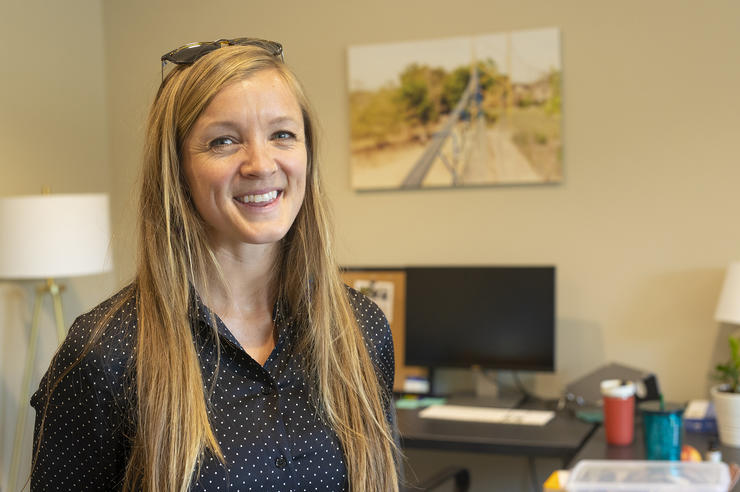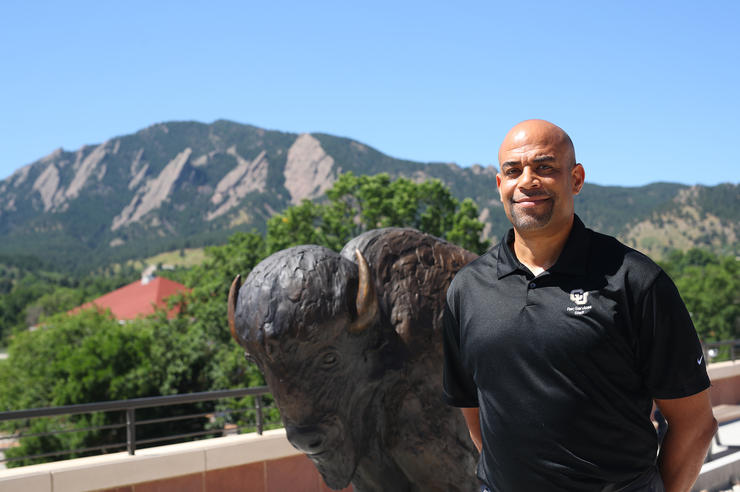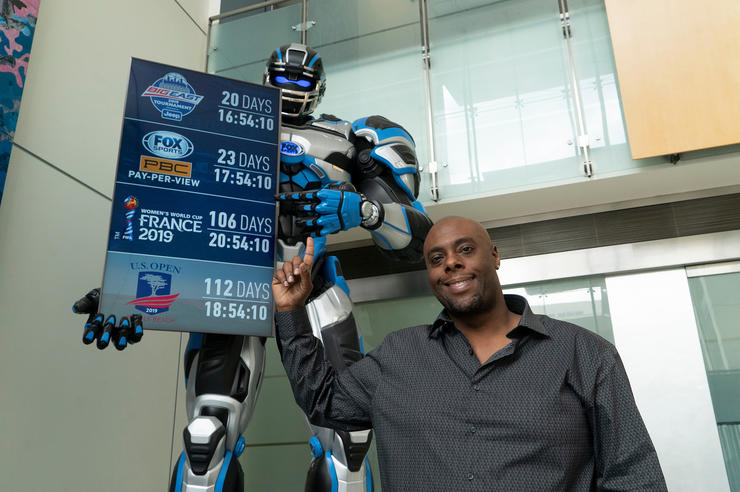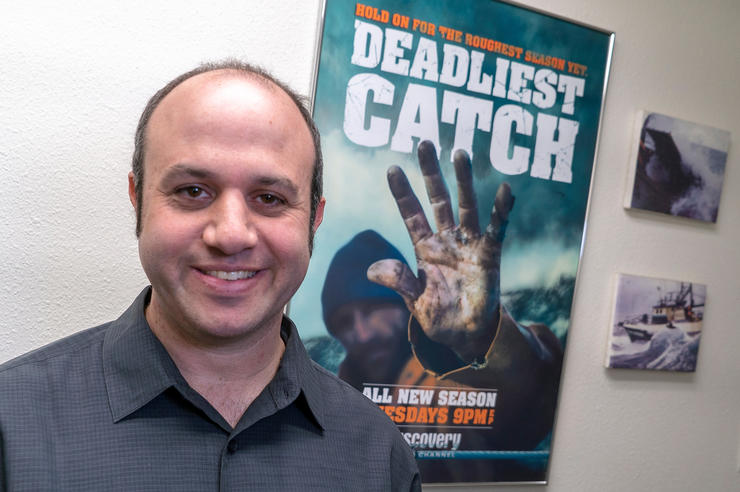Navigating the future of safe driving
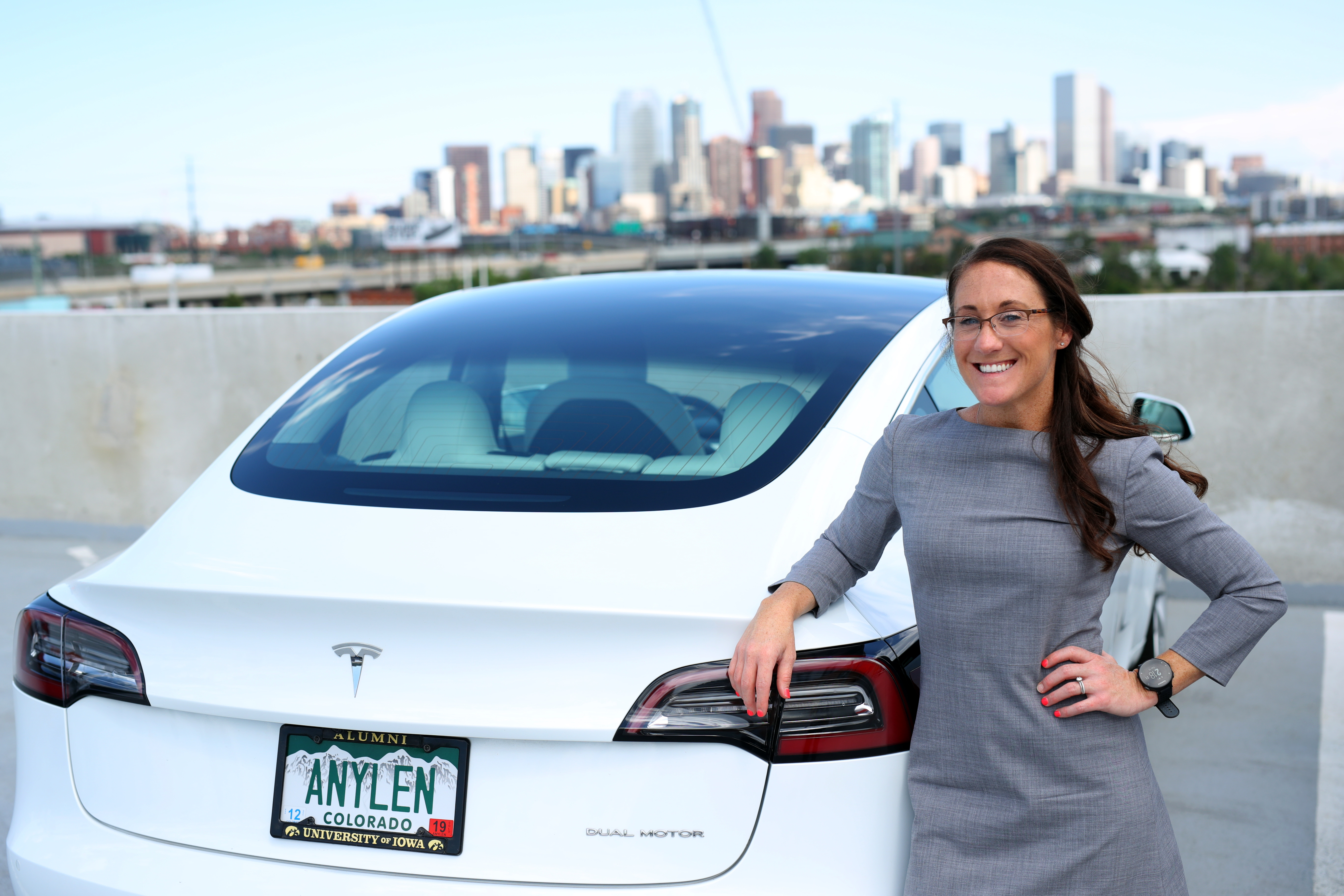
When Ashley Nylen is not taking the light rail to get to her job with the Colorado Department of Transportation, she drives her 2018 Tesla Model 3. “Driving an electric vehicle reduces carbon emissions, and I really believe one person can make a difference. I also think driving it makes me better in my position because I understand how drivers interact with the technology.”
Some 36,560 people died in motor vehicle crashes in the United States in 2018, according to the National Highway Traffic Safety Administration—about 100 every day—and more than 95% of those collisions involved driver error.
The good news is that safety features in vehicles have the potential to prevent crashes from occurring, and they are being developed at a rapid pace. University of Iowa graduate Ashley Nylen is at the forefront of these changes.
As assistant director for mobility technology with the Colorado Department of Transportation, Nylen is charged with figuring out how these technological advances can improve safety, mobility, and efficiency on the state’s roadways.
While driverless cars may be decades away, Nylen says many autos already are equipped with some connected and autonomous vehicle (CAV) technology that helps drivers navigate safely. Adaptive cruise control, lane assist, and collision-avoidance alerts are part of the building blocks of automation, while GPS is a connected technology that pulls network data to suggest alternate routes based on congestion, crashes, or other roadway incident reports.
The National Advanced Driving Simulator at the University of Iowa is the world’s most advanced ground vehicle simulator. UI graduate Ashley Nylen sees firsthand in Colorado how transportation research at Iowa is making people safer: “The research is really informing the path to bringing automation into the vehicle at higher and higher levels. It’s great to see some of the driver assistance systems I was studying there five years ago making a difference in how people move here in Colorado and across the nation.”
More features are forthcoming. In fact, the technology is evolving so quickly that it poses a challenge for transportation departments, Nylen says. Considerations include public policy, physical infrastructure, and the management and security of potentially huge influxes of data, to name a few.
“Humans will be behind the wheel for some time to come, but changes in transportation technology are rapidly transforming our roadway system. The Colorado DOT is well aware of that, and they are preparing for and enabling a future that can address these technologies as they become available,” says Nylen, who earned a Bachelor of Science in political science with a minor in communication studies from Iowa in 2008 and a Master of Science in urban and regional planning in 2010. “We need to make sure that our environment is sound to allow vehicles with advanced technologies to be on our roadways and that we have a mechanism to understand what these higher levels of automation mean from a safety perspective.”
Colorado is aiming to leverage technology to make its roads safer by building one of the nation’s largest networks of connected vehicle infrastructure. Work is underway to convert thousands of miles of state highway into “information freeways,” where data can be communicated wirelessly to and from vehicles and used, in turn, to aid both drivers and transportation workers in decision-making.
“Students these days are faced with ever-changing technology. Focusing on the technology itself doesn’t prepare them for the future. Integrating the liberal arts into the sciences is critical for solving complex societal problems.”
“If we see, for example, that a high number of vehicles are turning on their windshield wipers at the same time but our weather stations or cameras aren’t showing that there’s weather, then we know that there’s some type of event triggering it,” says Nylen, noting that devices along the roads can “listen” to cars equipped with connected vehicle technology and then share information to roadway operators and eventually directly to drivers. “That might lead us to reduce the speed on that segment of highway and inform drivers that there might be an icy patch ahead.”
Nylen loves the nature of her work, which she says is varied and leads to safer transportation for all. “A typical day will be anything from providing direction on our strategy with connected and autonomous vehicle technology at the state level to providing subject matter expertise on some of our projects that focus on data,” she says. “I also make frequent presentations, both in Colorado and across the nation, to explain how Colorado is moving to a more digital environment to prepare for connected and automated vehicles.”
The field is so new that Nylen says her job didn’t exist when she was a student at the University of Iowa in the late 2000s. Now, most state governments have someone in an equivalent role.
“At Iowa, I learned how to speak with people from all walks of life and how to craft a message in a way that would be meaningful to or directly connect with that person. I became well versed in analytics and statistics and also in the very industrial idea of growth and development in a community.”
The Cedar Rapids, Iowa, native had long been interested in cities and city planning but didn’t move into transportation until she was hired by Iowa’s Dan McGehee, director of the National Advanced Driving Simulator (NADS) on campus and a nationally recognized expert in vehicle safety and driver behavior. The two worked together on several research projects at the UI Public Policy Center and at NADS before Nylen took the Colorado job in 2018.
McGehee says Nylen’s initiative and curiosity set her apart and that her liberal arts studies have made her a leader in the slow migration of advanced transportation technologies.
“Having that background in political science and in urban and regional planning provides Ashley with the breadth needed for looking at big-picture issues—she is able to see both the micro and the macro elements,” says McGehee, who has academic appointments in industrial and systems engineering, emergency medicine, public policy, and public health. “Students these days are faced with ever-changing technology. Focusing on the technology itself doesn’t prepare them for the future. Integrating the liberal arts into the sciences is critical for solving complex societal problems.”
Nylen says her time as a UI student and employee prepared her well for her leadership role.
“At Iowa, I learned how to speak with people from all walks of life and how to craft a message in a way that would be meaningful to or directly connect with that person. I became well versed in analytics and statistics and also in the very industrial idea of growth and development in a community.”
